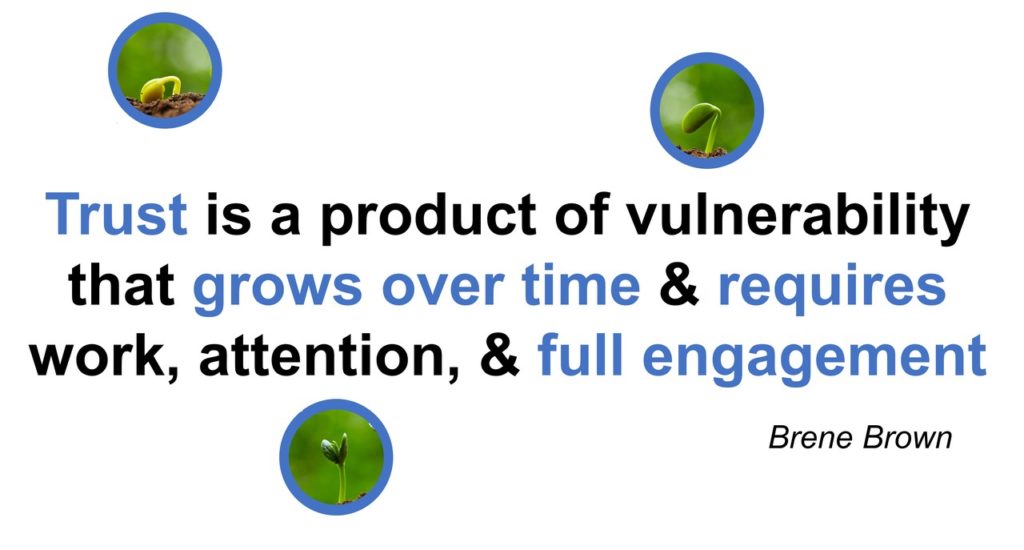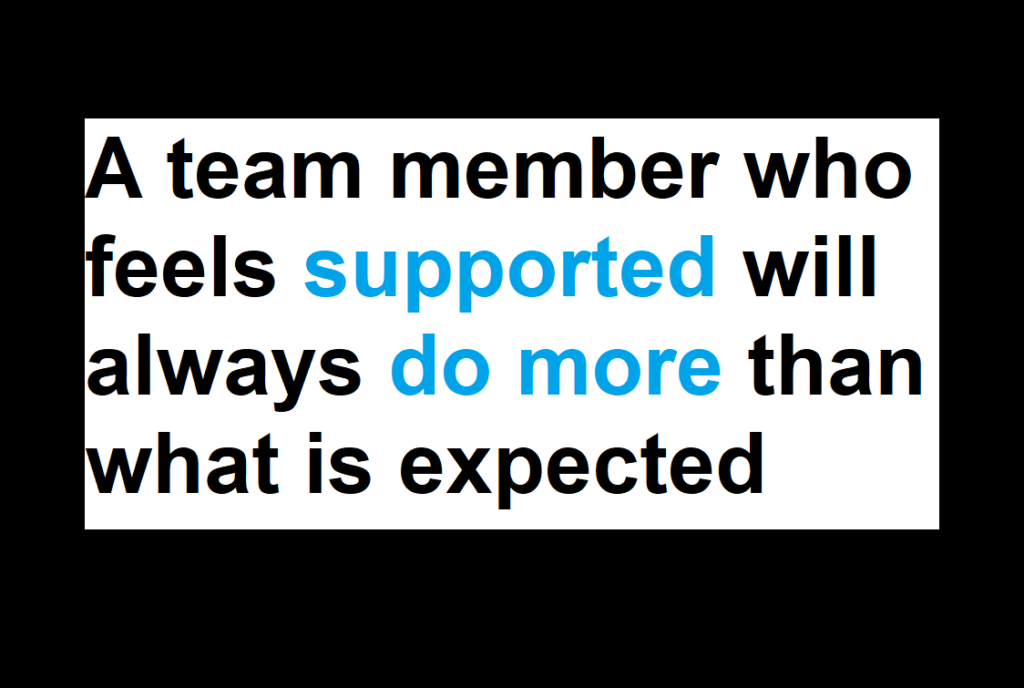
If you could only pass on one piece of Business advice to your grandchildren, and you knew with absolute certainty that they would follow that advice throughout their time in business, what would that advice be?
Everything in business must begin with understanding why – why am I doing this, why does it matter, why do I want to have this impact in the world? Yet, in many cases we get busy asking ourselves “HOW” we change things. This is usually borne out of difficulties or challenges, when asking the “how” question simply increases the size and perception of the scarcity or lack that promoted the question in the first place. In order to create change, we then decide to take some action, any action, to increase the possibility of a better outcome. This then leads to increases in motivation, which in turn, adds to us taking more action. The challenge comes when we simply increase the “how” generated action and motivation, without objective reflection on the value of the action, which effectively has us sucked into the Action Vortex! In a business, as in life, this leads to lots of action, though often with limited results.
By contrast, if we ask ourselves the “WHY” question, we are more likely to connect to what inspires us, what “calls to us” and therefore what puts us into greater flow. When we are inspired and inspiring, we get into a state of attraction, which leads to greater inspiration and in turn, creates even greater attraction. At this end of the spectrum, our actions are far more powerful and our leadership attracts people and opportunities that build our success and increase the positive impact we can make in our business and the world.
It is important to understand the WHY behind what we are doing, as this sets the framework for our higher purpose and is at the core of all we do. Your “Big Why” gives you clarity about the essential energy that must be in all things for you to be successful, content and in “flow”. Knowing your own “why” and that of each of your team members will ensure you access the greatest sense of flow in the work you do, which in turn, adds to the development of a positive business culture and a sense of shared purpose for you, your team and those you serve. The “why” behind what you are doing usually reflects your values.
Values are the principles or standards by which we live and work. They are fundamentally important to us in that they influence our actions and choices and drive what we do and how we do it. It is also fair to say the way we understand ourselves and the world is viewed through the “filter” of our values and therefore, they inform the way we create meaning from our experiences.
Our values help us to determine whether our actions are right or wrong, effective or ineffective, and this same filtering process is applied to all aspects of our business and life. Our values will also inform the way we judge other people’s actions as good or bad, right or wrong, helpful or unhelpful and so it is essential that we understand what our values are. Our values can change according to our experience and context, so it is well advised to review them regularly to ensure they support you – your work, relationships and understanding of yourself.
Creating a business that is in alignment with our highest values will increase our effectiveness and success. Knowing the values of our team members and braiding this with the values of the business will also add to our effectiveness and is a cornerstone of strong leadership.
In this context, leadership is the ability to understand people and inspire them to work toward an agreed and mutually enrolling vision or goal, the benefits of which are felt by those we serve, the members of the team and the broader business. Management is more focussed on the administration, systems and processes that ensure accountability and quality control. Therefore, it is the work of the true leader that creates INSPIRATION. These are some of the keys to great leadership:
Why – Strong leaders know the WHY behind what they do and understand the importance of knowing the WHY of each member of their team. They also know that being able to enrol and feed into each team member’s big why and braid this with the organizations WHY is crucial to team cohesion and individual satisfaction and achievement.
Certainty – Great leaders possess confidence and clarity, borne of self-awareness. Furthermore, this certainty is contagious. Team members are naturally drawn to them, seek their advice, and feel more confident as a result. When challenged, they remain open to new ideas and perspectives. They are confident that their ideas, opinions and choices are well-informed and reflect the collective view because they know their people! Strong leaders may make mistakes, but when this is discovered, they take responsibility and look to the opportunity for shared learning and act to change things quickly.
Growth – Extraordinary leaders focus on the growth and development of their team. This means they learn the best ways to acknowledge, support, encourage and challenge each member, to ensure the highest possible level of engagement. The development of a culture of learning is essential and a powerful leader will create and hold a supportive environment, where people feel able to share their mistakes in the interests of shared learning and growth.
Accountability – Extraordinary leaders take responsibility for everyone’s performance, especially their own. They have a strong capacity for insightfulness and will check in with themselves to see what the learning is in any situation and what (if anything) they can do to provide stronger leadership in the future. From this place, they will then look outward to ensure the accountability of others. This adds to a culture of personal responsibility that allows team members to hold each other more accountable.
Communication – True leaders recognize that effective communication begins with listening. The capacity to ask great questions and explore unvisited aspects of the thoughts, feelings and inspirations of team members, is evident in strong leaders. They also have the ability to “listen beyond the words” to discover the values, beliefs and inspirations of their team. Speaking into the “listening” of each person increases understanding and cohesion and builds trust. Recognizing the patterns of interaction between team members and ensuring these are positive and growth promoting is also at the forefront of the contribution of an extraordinary leader.
Optimism – True leaders are a source of positive and persistent energy, often borne of the knowledge that they are doing what they were born to do. They generally communicate easily and in a manner that inspires. They operate from an open-hearted place and are genuinely interested in other people’s welfare and growth. They seem wired to create solutions and always know what to say to inspire, uplift or reassure. Importantly, they also know the difference between motivating team members (a force from behind) and inspiring them (a force from in front) to reach for greater outcomes.
Transparency – Strong leaders treat others the way they wish to be treated and avoid hiding things, even those of a personal nature. They are extremely ethical and believe that honesty, integrity and transparency form the foundation of success. They know and embody their own and the organisation’s values, such that employees are inspired by their example of how to live by their highest values. They share information openly and enrol team members in decision-making whenever possible. If required, they are also able to make decisions that may not be popular but provide a clear context for why the decision was made that way.
Focus – Great leaders recognize the importance of planning ahead and the value of being well organized. They explore multiple scenarios and the possible impacts of their decisions while considering viable alternatives and consulting with appropriate people. They then make plans that create the greatest possible success for all concerned. They then create clear strategies, systems and processes to ensure high performance is tangible, easily defined, and monitored. They communicate their plans effectively to ensure maximum enrolment of team members in achieving goals.
Inspiration – Powerful leaders are clear about what inspires them and stay connected to this. They articulate their highest values and are clear about how to live in accordance with them. They know themselves well and value the practice of self-reflection and life-long learning. They communicate clearly, concisely, and consistently and in a manner that inspires everyone to be and give their best to mutual benefit. They challenge their people by setting high and attainable standards and expectations – modelled by their own behaviour – and then give the support, tools, training, scope and autonomy to pursue those goals and become the best employees they can possibly be, so they feel a greater sense of achievement and success, the organization grows and those they serve feel and sense a genuine difference. Inspirational leaders recognize that the greatest outcomes for all concerned are borne out of braiding individual endeavour with the organisational endeavour and serving the unique needs, wants and inspirations of those to whom they provide service.



















